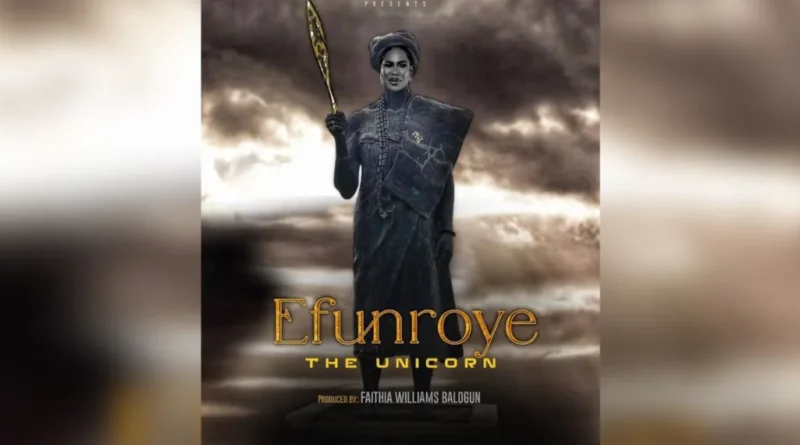Balogun’s social media post promoting the film highlighted themes of power, trade, and legacy, hinting at a strong and complex portrayal of Efunroye Tinubu. Yet, Balogun did not provide specific release dates or a full cast list. The backlash, however, grew quickly, with critics accusing the project of glorifying Efunroye Tinubu’s role as a slave trader. This tension increased due to President Tinubu’s shared surname and the ongoing economic challenges many Nigerians face, fueling speculations about potential political motives behind the film. Faithia’s decision to explore Efunroye’s story, despite the historical connections to slavery, has generated mixed reactions, especially with critics accusing her of possibly supporting or promoting a politically charged narrative in a time of economic uncertainty.
In response to the criticism, Faithia Balogun took to Instagram to clarify the intent behind Efunroye: The Unicorn. She emphasized that the film is not intended as a political statement or a glorification of slavery. Rather, she described the movie as an artistic exploration of Nigerian history, intended to entertain, educate, and foster meaningful discussions. Balogun expressed that her goal is to share Nigerian stories authentically while acknowledging both positive and controversial aspects of historical figures like Efunroye Tinubu. She stated that the film is neither a documentary nor a political endorsement, underscoring that its primary aim is to engage audiences with Nigerian heritage and history through creative storytelling.

Balogun further explained that while the film is rooted in history, it employs creative liberties to make the story accessible and engaging for a modern audience. She expressed gratitude for the interest and passion surrounding the project, thanking her fans for their support. Addressing misconceptions, she emphasized that Efunroye: The Unicorn does not seek to reshape historical narratives but rather to present a balanced portrayal of a complex legacy, including both triumphs and controversies. Her message invited viewers to approach the film with an open mind, as it aims to depict the multifaceted nature of Efunroye Tinubu’s impact on Nigerian society.
Balogun also shared that the film remains in its development and pre-production stages, with her team dedicated to delivering an authentic and impactful project. She acknowledged the public’s interest in Nigerian history and expressed hope that the movie would inspire constructive conversations about Nigeria’s heritage and cultural identity. Balogun reassured her fans and critics alike, stating that, ultimately, her goal is to present an entertaining work that respects the complexities of historical figures and events.
Efunroye Tinubu, born in the early 19th century in the Ojokodo forest area of Egbaland, emerged as a prominent businesswoman and political influence in Lagos, actively supporting two Obas in their pursuit of power. Through her connections, she established a vast trade network involving various goods, including enslaved individuals, with European merchants. Her wealth and influence led to Tinubu Square in Lagos being named in her honor, yet her involvement in the slave trade has overshadowed her legacy for many. Balogun’s project seeks to bring these layers of history to a wide audience, hoping to provoke thought and appreciation for the complexities of Nigerian historical figures.
In her concluding message, Balogun thanked her supporters for their encouragement and promised that the movie would contribute positively to the ongoing dialogue about Nigeria’s history and cultural pride. She emphasized that while Efunroye: The Unicorn draws from historical events, it is ultimately a work of fiction inspired by real-life figures, aimed at creating an entertaining yet reflective portrayal for Nigerian and global audiences alike.









